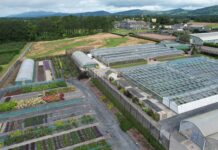

Following the Brexit vote, the decreased value of the Pound did not seem to have any immediate effect on Consumer Price Index. However, figures from this week show that the Pound’s slump has finally begun to impact inflation, which has risen to its highest rate for over two and a half years.
The Office for National Statistics identified food prices as one of the main drivers of inflation, alongside the cost of air fares and petrol prices. They cited more expensive imports and the price of oil “may now be feeding into food manufacturer output prices and consumer prices for food products.”
Up to this, food prices had been dropping year on year, and are still down overall. However, the 0.8% rise in December, there is a clear upward trend in prices. Key food items that saw a rise in price in December include vegetables, bread, and cereals, oils and fats, sugar, jam, chocolate, and sweets.


Pricing consultants Simor-Kucher outlined that the supermarket price wars have had a huge influence over the last two year in keeping the price of shopping down. However, they were skeptical of the industry’s ability to sustain this pattern, stating, “We will be fortunate if this is still the case in 2017 given the cost increases they face.”
Brexit has also begun to make British people poorer overall. The last two years saw an incredible period where inflation was in or around the zero mark, while growth in average weekly earnings was at 2.5% on average. However, with inflation forecasted to rise to 3% in 2017, the growth in earnings is expected to hit a reverse trend by late summer. The expectation is that nominal pay will grow by 2.4% in 2017, but this figure may be affected by a pay squeeze due to rising prices.
For more information please contact info@bordbia.ie







